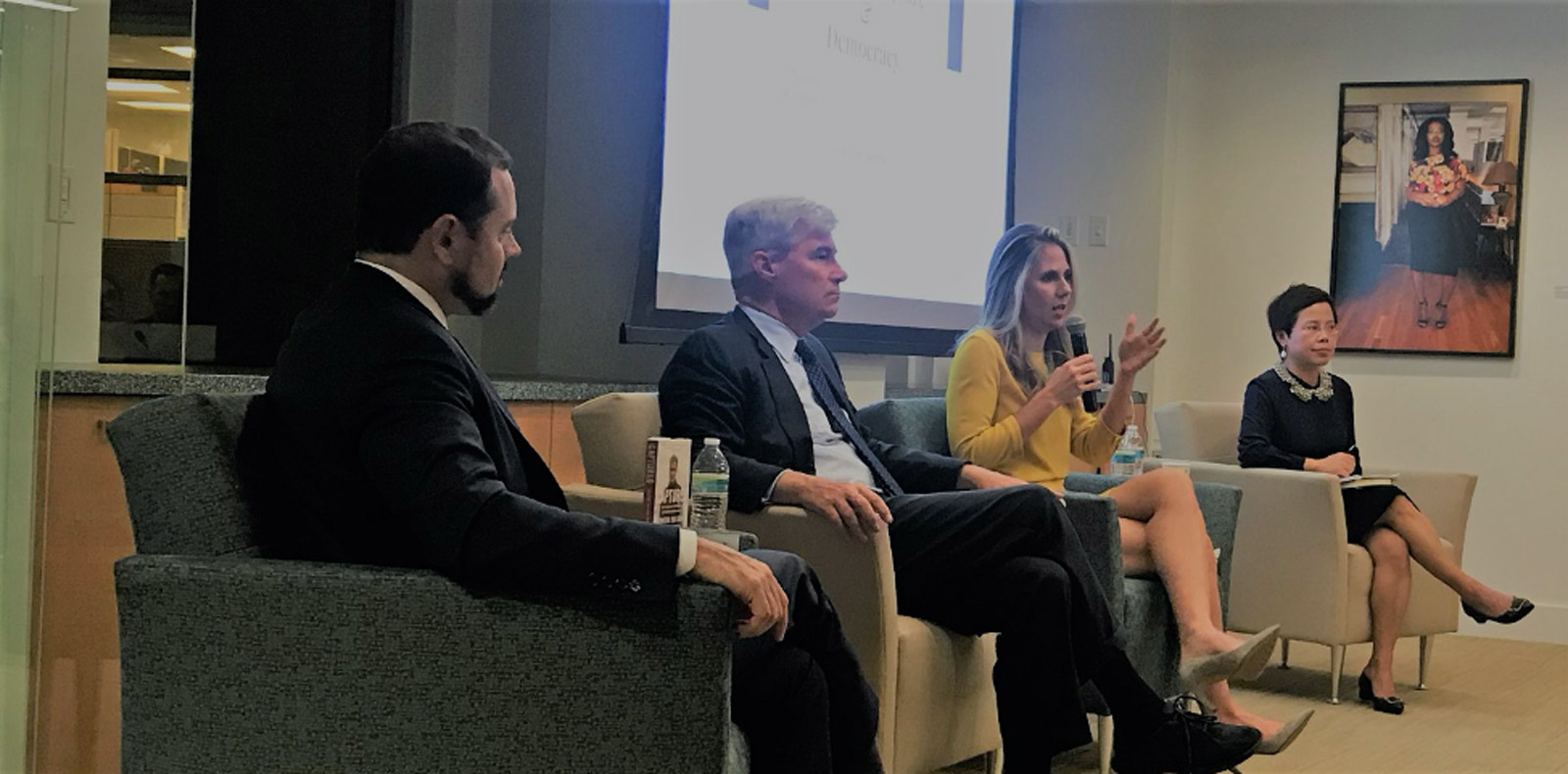
In my life, I have been profoundly fortunate to always be surrounded by smart people changing the world.
Last week, I had that honor yet again as I spoke on a panel that was moderated by Tom Perriello, the Executive Director of Open Society-U.S. and former Member of the U.S. House of Representatives, and featured Senator Sheldon Whitehouse of Rhode Island; Jingjing Zhang, Founder and Director of China Accountability Project; and me, Alison Kiehl Friedman, the new Executive Director of ICAR. Together we took on the issue of corporate capture – which the Senator has literally written a book about – and had a hopeful conversation about the future of our democracy and the world we want to see.
I could not do justice to all that I learned from these panelists, but here is what sticks with me:
Jingjing, who has taken on some of the most pressing environmental issues of our time in Chinese courts and won, remarked on how, in preparing for this panel, she tried to find or come up with a Chinese language translation of “corporate capture” and was unable to do so. She reminded all of us that, despite our frustrations with the United States’ system and the corporate influence damaging the progressive path forward, we are lucky to have the laws and courts of the United States, which provide opportunities for remedy that don’t exist elsewhere.
Senator Whitehouse charged us all to look beyond the “stab in the face” of the President’s daily transgressions to the sepsis that is corporate capture in our democratic system. He spoke about the need for campaign finance reform and courageous leadership that will take on the fossil fuel industry.
Our discussion of the need to focus on fixing systems, rather than individual issues, left me proud to layout the new vision for ICAR:
ICAR believes that societies thrive when governments have the resources and independence to protect human rights against the threat of disproportionate power, access, and money. We are working to ensure that this remains possible by protecting those who speak out in service of democracy, combatting the rise of the corporate state, and enacting legal safeguards to ensure corporations are held accountable when they infringe on human rights. It’s no small task. When I was a candidate, I learned a lot about the goodness of people, our shared connections, the perverting influence of money—particularly corporate money—and the limited capacity for many candidates to dive into substance and nuance.
That’s a money problem. That’s a system problem. That’s a media problem. That’s a how hard we make it to vote, especially for people of color, problem. And it’s all eminently fixable.
The policies that will change a lot of this are very clear. And the path to changing those policies runs exactly through all of those problems—which I think is where we’ve gotten stuck in years past. But, I think we’re at the dawning of a new era—where systems change is being talked about not only on DC panels, but on Presidential debate stages, amongst organizations, and most importantly, at kitchen tables. We can do this.
This is the mission of ICAR. I’m so proud to lead this organization and to work within the broader community represented Monday evening, and I’m excited to be joined by you all as we look forward to the fights we’ll take on – together – in the coming years.
In solidarity,
Alison Friedman
